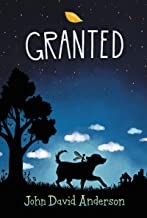Book Review: The Ickabog, by J.K. Rowling
If I had noticed that this book was written by J.K. Rowling, I would not have read it. But it turned out to be a good read. A fascinating plot idea.
Title: The Ickabog
Author: J.K. Rowling
Pages: 274
Original Publication Date: 2020
Genre: Middle School Fantasy
The Ickabog was a fictional ferocious man-eating monster, invented by conniving advisors to take over the prosperous and free nation of Cornucopia. Steep taxes, mock trials, and elaborate lies followed, as well as extreme censorship, poverty, and complete insanity.
Some people completely bought into the lie, others did not believe but had to stay silent - otherwise, they could be murdered or imprisoned.
But what if the Ickabog IS REAL? What does it want? And if it's not vile, where did all the legends come from?
-
My rating here is a little complex.
The story idea is very good, but the characters are shallow and the writing style seemed a little simplistic.
Story Idea: 9/10
Character Development: 4/10
Writing Style: 4/10
Overal Rating: 6/10
Title: The Ickabog
Author: J.K. Rowling
Pages: 274
Original Publication Date: 2020
Genre: Middle School Fantasy
The Ickabog was a fictional ferocious man-eating monster, invented by conniving advisors to take over the prosperous and free nation of Cornucopia. Steep taxes, mock trials, and elaborate lies followed, as well as extreme censorship, poverty, and complete insanity.
Some people completely bought into the lie, others did not believe but had to stay silent - otherwise, they could be murdered or imprisoned.
But what if the Ickabog IS REAL? What does it want? And if it's not vile, where did all the legends come from?
-
My rating here is a little complex.
The story idea is very good, but the characters are shallow and the writing style seemed a little simplistic.
Story Idea: 9/10
Character Development: 4/10
Writing Style: 4/10
Overal Rating: 6/10
